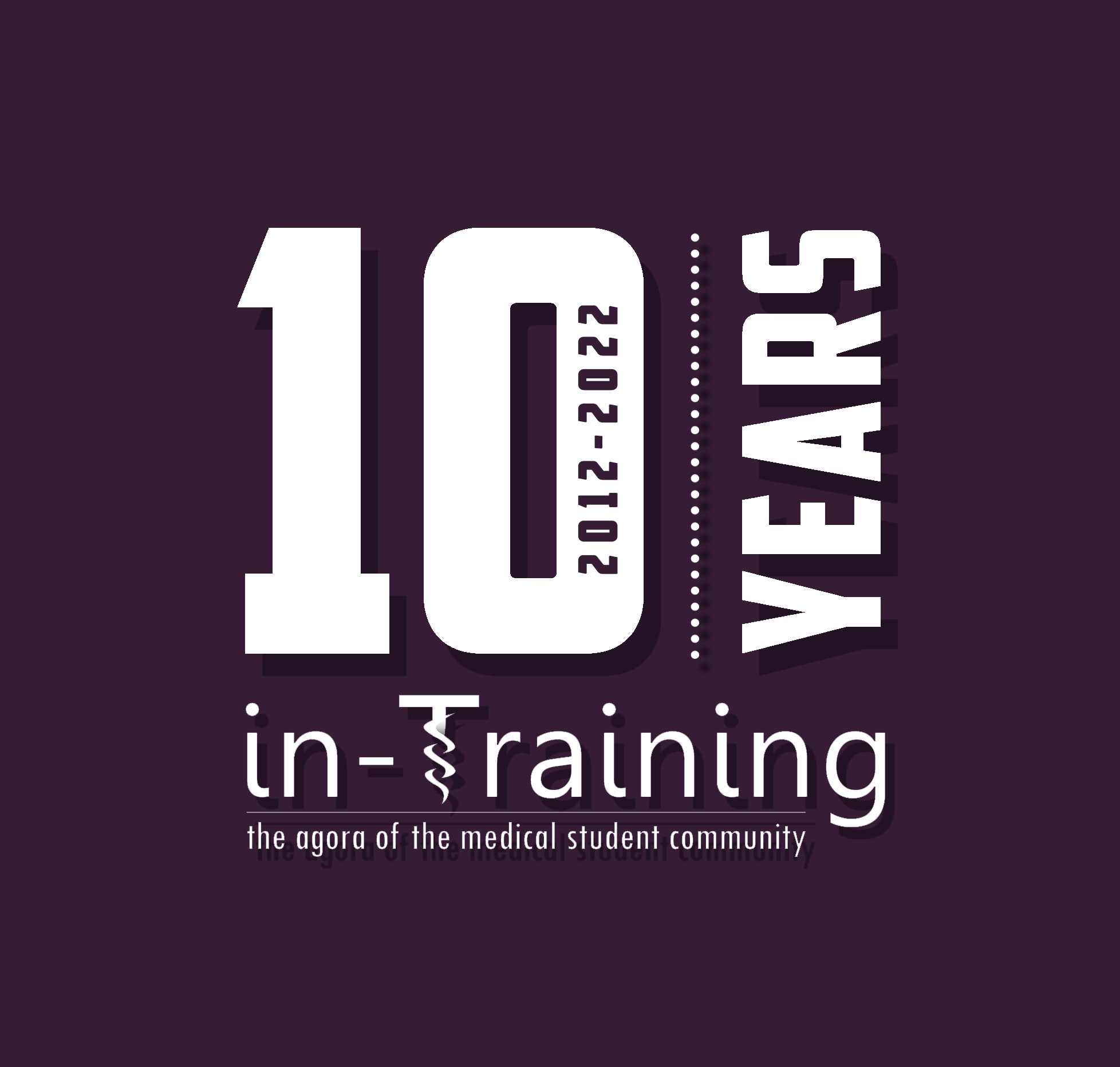This April marked the 10-year anniversary of the founding of in-Training, and we invited all members of the in-Training family to contribute articles and other artistic works to celebrate our first decade as the premier online peer-reviewed publication by and for the medical student community.
Sara Wierbowski is in the Class of 2023 at Georgetown University School of Medicine and contributes this article as an in-Training writer.
When I was growing up, I used to love a particular series of video games called Trauma Center. In 2010, they released a version called Trauma Team where you got to play as various medical specialists, one of whom was simply considered a “Diagnostician.” Dr. Gabriel Cunningham’s “cases” were some of the most challenging because you were presented with an array of symptoms, imaging, and lab work and started ruling in or ruling out diagnoses until you got the right answer. Of course, as a fictional video game, these were often the most obscure and random conditions that could be diagnosed, but his whole storyline was fascinating to me. Mainly because, unlike the other doctors in the game, he solved mysteries.
Now, a video game I played 12 years ago is not related to why I write or why I am interested in medicine, let alone psychiatry. But, it is related to this idea of stories in medicine. What I loved about that game was the story it weaved into the practice of medicine, as unrealistic as that ‘medicine’ may have been. What I love about medicine, especially psychiatry, is the stories and narratives that I get to investigate to understand and help my patients.
On one of my first weeks as an acting intern in psychiatry during my first rotation of fourth year of medical school, my attending was explaining to me that, to ideally understand a psychiatric patient, you need to look at everything. He called it “detective work,” which I found a funny image to hold in my head: the psychiatrist as a detective. Not to say other fields don’t have to investigate, but I have come to see just how important the full picture of the patient is in psychiatry. A patient may present with something that seems like a “classic” psych patient issue: hearing voices. But, just knowing that an individual hears voices in no way explains what is really going on. You need to go back to childhood to understand possible genetic factors or life stressors. You need to understand how their current state developed over time. And, what I think many people forget: you need to understand what their life looks like now. Are they able to receive and manage medications? Do they have a safe place to stay? Is there a support system around to care for them? Can anyone tell you about their baseline? It is hard to answer any of that and to really formulate a diagnosis and treatment strategy without understanding a narrative of that person. Who are they and how did they end up here? It’s the most essential question to really help them improve.
Just a few weeks later, another attending said something that again resonated with me: “You have to keep the humanity of the patient in mind.” While it is easy to see a patient as an individual with a problem that needs fixing, what truly matters is that they are an individual. The humanities are an essential tenet of medical practice and narrative medicine: writing about an experience, interviewing a patient, or even just reading a book all share the core similarity of storytelling. Experiences matter and every detail of the patient that you can perceive is a clue to understanding the full picture. When I talk to my psychiatry patients and ask them all sorts of questions, maybe even going back to their childhood and development, it is all to serve the greater purpose of understanding them, who they are, and what they bring to this encounter.
While in some sense I am far from that child playing a video game, I am in many ways still the same. I still want to seek the story and play detective. Now, it’s just with real people who have real lives outside of their interaction with me. And to make the most of those interactions, I turn to the humanities. Even when it isn’t apparent, that framework of narrative storytelling is always guiding me behind the scenes.

